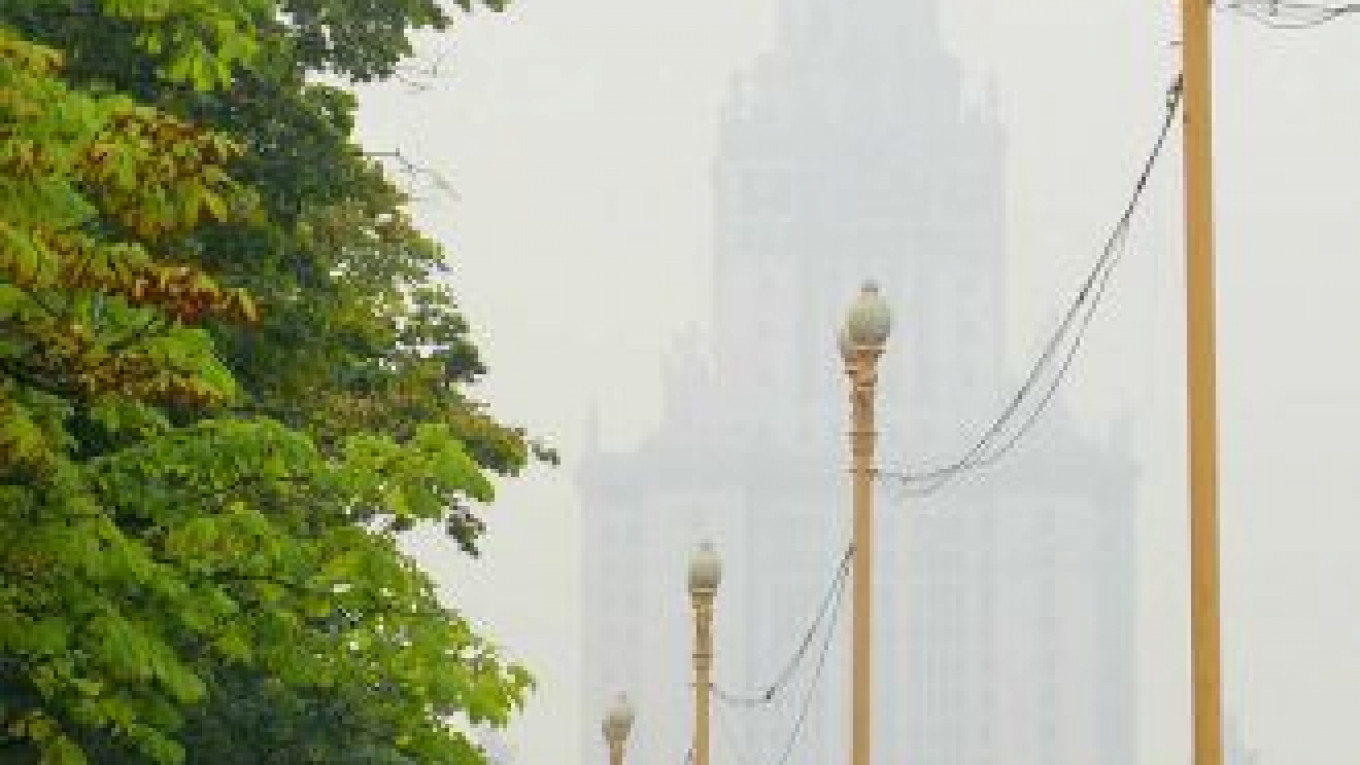Russian universities have fallen on a renowned list of the world's top 400 universities to be published Thursday, with the country's most famous school dropping out of the top 225 and no others from Russia making the cut at all.
Lomonosov Moscow State University is the only Russian institution in the Times World University Rankings for 2013-14, placing in the 226-250 group after being in the 201-225 range last year.
President Vladimir Putin made it a priority upon returning to the Kremlin last year to improve Russian universities' positions in international rankings, ordering the government to ensure that at least five domestic institutions entered the world's top 100 by 2020.
The editor of the Times university rankings, Phil Baty, said the publication had begun cooperating informally with Russian education officials to help the country's institutions improve their positions.
Baty noted one issue in particular that needed to be addressed by Russian authorities in order to upgrade its universities: embracing English as the language of scholarly communication.
The Times Higher Education rankings have been published annually since 2004 and some Russian universities made it into the top 200, before the publication switched to a stricter methodology in 2010.
The rankings are based on 13 factors, including the quality of teaching, research and international perspective, which measures the university's ability to attract foreign students and faculty. Only schools in the top 200 are given specific positions.
This year's rankings are dominated by U.S. institutions, which occupied seven of the top 10 spots, with the other three taken by British schools. California Institute of Technology ranks first, followed by Harvard, Oxford, Stanford, Massachusetts Institute of Technology, Princeton and Cambridge.
When asked about the reason for Moscow State University's downgrade, Baty said by phone that the university "needed to look at the global impact of its research," which is "about targeting the most influential world-leading research channels and leading global forums to publish its research."
Baty noted that while Moscow State University fell in the overall ranking, it found itself in the top 100 for physical sciences along with two other Russian universities, which he called "a cause for celebration" in a statement accompanying the list.
"It shows that with discipline-specific focus, Russia competes with the very best in the world," he said.
Rankings of top schools for certain sciences were extended to 100 spots for the first time this year after previously containing only 50 universities. Russian schools have never made it onto any of those top 50 lists.
Repeated calls to Moscow State University's press office for comment on its drop in the rankings went unanswered Wednesday evening.
Speaking about the Times' cooperation with the Russian government to help the country's institutions move up in the rankings, Baty said a joint roundtable was held earlier this year where the publication mostly shared information about how the rankings work and encouraged universities to submit their data.
Baty said Russia should liberalize its visa policy and step up overseas recruitment to encourage more international faculty to work at its universities, as well as "look at the system of rewarding its young talent to make sure that they are exciting younger researchers."
Two other reputed international rankings — the QS World University Rankings and the Academic Ranking of World Universities, unofficially known as the Shanghai Ranking — placed Moscow State University 120th and 79th this year, respectively. No other Russian universities made it into the top 200 of those lists.
Last year, one other Russian university, Moscow State Engineering Physics Institute, made it into the top 400 in the Times ranking, appearing in the 226-250 group.
Frustration over the country's poor showing on such lists has prompted the government to contemplate making its own grades for world universities. In July 2012, Putin ordered the government to devise criteria for such a ranking, and in March the Education and Science Ministry told the president that it had formulated the criteria but did not publish them.
In August, Defense Minister Sergei Shoigu suggested to Prime Minister Dmitry Medvedev that Russia should produce its own ranking of world universities, but Medvedev said that he doubted they would be "taken into consideration" by the international community.
Contact the author at n.krainova@imedia.ru
A Message from The Moscow Times:
Dear readers,
We are facing unprecedented challenges. Russia's Prosecutor General's Office has designated The Moscow Times as an "undesirable" organization, criminalizing our work and putting our staff at risk of prosecution. This follows our earlier unjust labeling as a "foreign agent."
These actions are direct attempts to silence independent journalism in Russia. The authorities claim our work "discredits the decisions of the Russian leadership." We see things differently: we strive to provide accurate, unbiased reporting on Russia.
We, the journalists of The Moscow Times, refuse to be silenced. But to continue our work, we need your help.
Your support, no matter how small, makes a world of difference. If you can, please support us monthly starting from just $2. It's quick to set up, and every contribution makes a significant impact.
By supporting The Moscow Times, you're defending open, independent journalism in the face of repression. Thank you for standing with us.
Remind me later.






